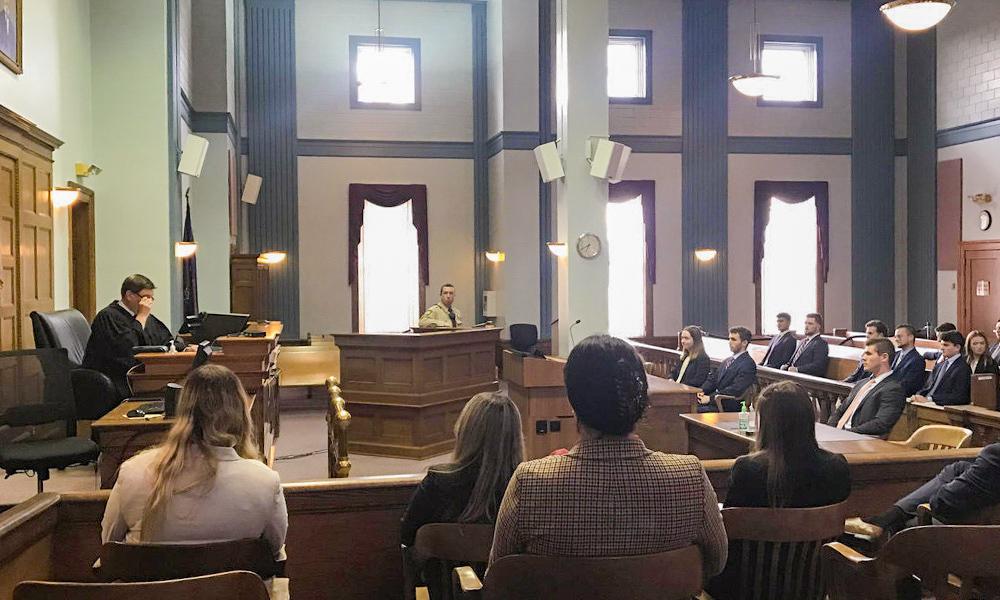Students on the case
News
SUMMARY: Students in business-law class participate in the mock trial of an accused white-collar criminal.
Rockingham County Circuit Court in downtown Harrisonburg was the scene of an engaged learning exercise in which 28 students in David Parker’s “White Collar Crime” class recently participated.
The Hon. Clark A. Ritchie presided over a mock trial in which students were assigned roles as prosecutors, defense counsel, witnesses and jury members. The scenario for the activity called for a fictitious defendant, "Madison Casco," to stand trial on charges of credit-card theft, credit-card fraud and receiving stolen goods at "Dolley Madison University" in "Rocktown, Virginia."
"A mock trial teaches essential skills such as public speaking, critical thinking and the art of forming a persuasive, cohesive argument," says Parker, a bar-certified trial lawyer who has taught business law at JMU since 2009. "Students may think they’re already good at those things, but they’re likely to find that a mock trial presents them with a whole different level of difficulty.”
Parker describes a hypothetical student-prosecutor conducting direct examination of a witness. Defense counsel raises an objection the prosecutor had not previously considered. “She or he likely has no more than 10 seconds,” Parker says, “in which to dissect defense counsel’s argument, apply to it the rules of evidence and formulate a concise and coherent counter-argument.”
Prior to the start of the April 7 proceeding, witnesses to the alleged offenses were interviewed in order to determine whether all the pertinent information had been gathered. Next, student- prosecutors and defense counsel developed their opening and closing arguments.
The concluding phase of the pre-trial process was devoted to drafting of briefs and preparation of witnesses to undergo both direct and cross-examination.
When the trial was finally gaveled into session, students made their initial arguments on a “motion to suppress” involving evidence discovered by Rocktown police officers. Defense counsel asserted that the search had been illegal.
Judge Ritchie considered arguments and written briefs submitted by the students, as well as their answers to his questions, before denying the motion and allowing the evidence to be admitted.
Each side then presented opening arguments, evidence in the form of witness testimony and exhibits, and closing arguments. The trial concluded with jury deliberations, in which Madison Casco was found "not guilty" on all counts.
The lessons a mock trial imparts are invaluable in business, says Parker.
“Whether you are interviewing for a job, pitching an idea to your boss or trying to sell investors on your business plan, your goal is to persuade someone that your product is better than anyone else’s,” he says.
“The mock trial helps equip students with the skills needed to do this successfully."
